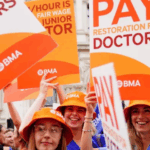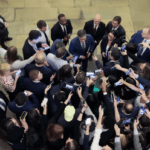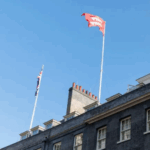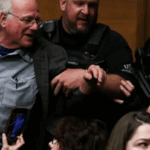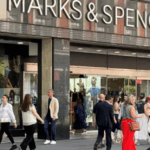The UK government is preparing a list of US products that could be targeted with retaliatory tariffs after President Donald Trump introduced new import taxes, escalating trade tensions between the two nations. This move signals a toughening of the UK’s stance as it seeks to finalise a trade deal with the US.
Business Secretary Jonathan Reynolds confirmed that the government is consulting with UK firms about the potential impact of the 10% tariffs, which will be imposed on nearly all UK exports to the US. He also noted that the government is considering which US products should be included on the list of goods subject to retaliation. If UK negotiators fail to secure a deal to reduce the tariff by May 1, Reynolds warned that the UK could impose tariffs on US imports.
The government has released a sample list of goods that could face UK tariffs. While being included in the 417-page list does not guarantee a tariff, the Department for Business and Trade stated that the selected products were chosen for their relatively limited impact on the UK economy. The goods range from purebred horses and children’s clothes to crude oil, firearms, and bourbon whiskey.
Reynolds assured MPs that discussions with the US government are ongoing to reach an economic deal that would either avoid or reduce the tariffs. However, he emphasized that the UK “reserves the right to take any action we deem necessary if a deal is not secured.”
While some have expressed concern about the new tariffs, Reynolds pointed out that the UK was hit with lower tariffs compared to other countries, which he argued vindicates the government’s pragmatic approach. However, Conservative shadow business secretary Andrew Griffith criticized the government, stating that the UK received no special treatment, as it is now facing the same tariffs as nations like the Congo and the Christmas Islands.
The UK exported almost £60bn worth of goods to the US last year, primarily machinery, cars, and pharmaceuticals. In addition to the 10% tariff on most UK exports, a 25% tariff has been imposed on UK car exports, along with tariffs on steel and aluminium products. However, some products, including pharmaceuticals, semiconductors, copper, and certain lumber items, are exempt from the new taxes.
The UK’s official forecaster has warned that a worst-case trade war scenario could reduce UK economic growth by 1%, erasing the £9.9bn of economic headroom Chancellor Rachel Reeves had anticipated in last week’s Spring Statement. This would likely force the government to raise taxes or cut spending to meet fiscal targets.
Behind the scenes, the UK government has been working towards a trade deal with the US. Sources suggest that an agreement is nearly complete, but it remains uncertain when President Trump will approve it. A potential deal would cover not only lower tariffs but also technology, goods and services, and agriculture—an area that has been contentious in previous US-UK trade negotiations.
Chancellor Reeves has hinted that the UK might consider adjusting its digital services tax, which imposes a 2% levy on tech firms like Amazon, in exchange for a reduction in US tariffs. However, the key question remains whether Trump’s 10% universal tariff is negotiable. While UK officials suggest it might be, White House sources have indicated that the tariff is part of a broader emergency measure that could take time to unwind.
The government has set a loose deadline of May 1 for the consultation process on a response. If no deal is reached by then, pressure will mount on Prime Minister Sir Keir Starmer to implement retaliatory tariffs.







